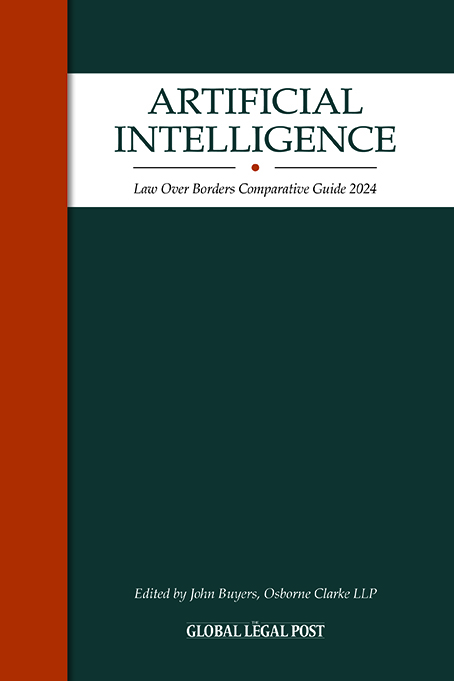Sign up for our free daily newsletter
YOUR PRIVACY - PLEASE READ CAREFULLY DATA PROTECTION STATEMENT
Below we explain how we will communicate with you. We set out how we use your data in our Privacy Policy.
Global City Media, and its associated brands will use the lawful basis of legitimate interests to use
the
contact details you have supplied to contact you regarding our publications, events, training,
reader
research, and other relevant information. We will always give you the option to opt out of our
marketing.
By clicking submit, you confirm that you understand and accept the Terms & Conditions and Privacy Policy
Society is on the verge of the “most profound human revolution in history” as the rise of artificial intelligence gathers pace, renowned futuroligist Zack Kass told the IBA conference in Paris on Tuesday.
Indeed, AI has been a topic that has kept many lawyers up at night over the past year. With the IBA having recently set up a task force to help the industry navigate the risks and opportunities its adoption presents, it was only fitting that AI expert Kass offered further guidance to the legal community in Tuesday’s keynote address.
He said: “Most people are aware of this technology but don’t use it, and I cannot comprehend why. By not training people and encouraging access to AI, we are creating a digital divide that will cause inadequacy and disparity in the world if we are not careful. For this revolution to work, we need to bring everyone into it.”
Kass believes that attorneys tend to be “disinclined” to technological change because of the risks and the uncertainty it poses. But law firms should get prepared to understand and use AI now, focusing primarily on what products to use rather than when to adopt the technology, he said.
For firms which have not yet adopted an AI system, he urged them to speak to their technology vendors to find the right product for their needs, and to avoid building their own models or using models that were not built by a research body or nation state.
Kass warned that law firms not adopting this technology “will be left behind”, but that they should adopt the technology “safely and responsibly” rather than rushing into it.
Kass also believes that job displacement because of AI is not a “real risk”. He stressed however that the bigger challenge companies may face is the “identity displacement crisis” AI creates, as certain skills or jobs may become obsolete. To avoid that crisis in the legal industry, he said that law firms should train their people for AI.
He shared that some human qualities – such as vision, wisdom, courage, curiosity and empathy – cannot be replaced by AI and that lawyers’ social skills should be core to finding ways to work with the technology.
He added: “For any profession using young people doing difficult intellectual work, you’ll need to figure out what your associates can do, and what AI can or should do. This will raise ethical questions around how much of the work we can redistribute, when it is appropriate and ethical to do so.”
But he added that, while worldwide regulation is still unclear, there are steps law firms can take to address the moral and ethical questions that are unique to the profession regarding the use of AI.
The right training combined with the right use of AI could also boost job satisfaction and work productivity. He said: “We are overworked and dissatisfied, the things that root us aren’t usually related to our jobs. AI will strip people of the grunt work to focus on more important things, and companies will be able to do new things with new profit margins.”
Kass also suggested that courts worldwide should consider whether to adopt AI in the future, stating: “I don’t want to be found guilty of a crime by AI being represented by AI. That said, I want my attorney to use AI. I think we should probably outsource most small claims, of less than $1,000, to AI to ease the burden on courts and trial times, and to let attorneys and judges focus on more important cases.”
In response to a question on regulation of AI, Kass advised law firms to be transparent about which technology they are using and in what capacity while regulation is being drafted to ensure trust with clients, regulators, employees and other stakeholders.
But one thing is for sure: while AI is not without its risks and challenges, it is the future and it will “unfold faster than in the past”, according to Kass.
He concluded: “If you were surprised by ChatGPT, hold on because we will see a whole lot more progress in a much shorter amount of time. And as new models gain more function, older ones get smaller and cheaper to the point where AI will become a common utility the same way we treat our current infrastructure.”
This article first appeared in the daily newspaper for the IBA Annual Conference 2023, which is published in partnership with The Global Legal Post
Email your news and story ideas to: [email protected]




